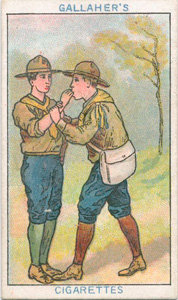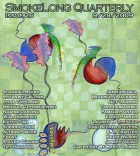The narrator of your story doesn’t exist much in the words of this story. Perhaps we know something about the future after this relationship. We get an idea of personality in what she/he observes and presents to us as meaningful. Yet, this story still feels like it belongs to this invisible person. How are you able to construct that so effectively?
Good question. I think sometimes when I’m writing I just slip into the person—almost like an actor. I’m in there routing around, in character as it were, and this voice comes out. There’s a full rich life, but this is just the dialogue memory of my narrator—the narrator’s memory of a lover and also the narrator’s process of remembering the lover and others who came before and after him. I try to condense my characters’ remembering so that I can create a concise story, much of it implied, hidden under the tip of the iceberg. Sometimes it works. Sometimes it doesn’t. This one definitely seemed like a keeper from the get-go.
The line “He said, ‘I’m worried about my sister'” adds a dark dimension to this story that implies so much about the boyfriend’s family. How did you come up with this?
I didn’t want the boyfriend to be a generic record collecting guy. I tried to find the right snippets of dialogue to expose him as complex and confused. Funny though. I think the freakiest line is: “Little girls just fall in love with me.”
Most of this piece is implied. With very few words, you capture a much bigger world, the idea that the narrator has moved on from this relationship, the idea of the boyfriend’s personality and background, the idea of love. Implication, some would argue, is the heart of flash fiction. For you, what is satisfying about working on this level of implication? What is unsatisfying about it?
It’s a challenge, for sure. Trying to evoke both characters with such sparse language—one of the characters not even present in the story. I felt like the record guy had to be complicated and surprising in order to reflect anything about the narrator. It’s always a balancing act. I don’t want to say too much or too little. Revision is kind of endless for me. I condense and I condense and sometimes I condense so far the story just, poof, disappears. Literally sometimes I just have a title left, every single word deleted. That’s when it’s pretty darn unsatisfying. Other times, when I get everything squeezed into my sentences just right and there’s a kind of tension—the words so tight they ping like a guitar string—then I can read it over and over again without stopping and it makes my head hum.
You’ve just published your first novel, Reconsidering Happiness. What do you want us to know about the book? What has your experience of publishing your first novel been like?
Yes, I’ve gone from condensing stuff onto post-it notes (that’s how Record Albums was written. I’ve taken to writing stories on 4×6 post-it notes…) to typing 67,000+ words into my computer. It wasn’t a natural transition, but I really enjoyed the challenge. Writing a novel was the hardest thing I’ve ever done and thus I feel it is my greatest achievement.
I’ve always been drawn to the concept of time in my flash fiction writing—how to mess with it, push the boundaries—and because the structure of my novel is nonlinear I have continued that same obsession, but in a much different way with the book. There are two main characters—Vivette and Margaret—and their lives overlap but they don’t necessarily know that. There’s a present to the book: Vivette’s 7-day visit to Margaret’s Nebraska farm, but beyond that the chapters travel back and forth in time to fill in information about both women—their lovers, mistakes, friends, passions, flaws. Character development comes in spurts as complex people rise up from the mix of information—much like the character of the narrator rises up from the snippets of dialogue in Record Albums—but bigger. Much, much bigger and not as abstract.
University of Nebraska Press has been fantastic. Helpful and professional and prompt. And that’s kind of the experience I wanted for my first novel. Kindness and a cool cover, I got them both.



 The SmokeLong Grand Micro Contest (The Mikey) is now an annual competition celebrating and compensating the best micro fiction and nonfiction online.
The SmokeLong Grand Micro Contest (The Mikey) is now an annual competition celebrating and compensating the best micro fiction and nonfiction online.